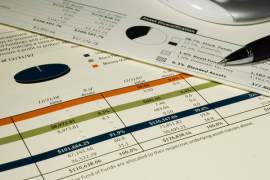
401k Rollover

What is a 401k Rollover?
A 401k rollover occurs when a holder of a 401k transfers or rolls their account over into a new IRA (Individual Retirement Account). This process will typically occur when the holder changes employers or retires and wishes to seize better control over how their retirement funds are invested.
If you leave your job—for any reason—and have a 401k account, you can decide between taking a lump sum (subject to taxation), which will keep the funds with your old employer (if permitted by the company), or have your 401k plan rolled over into a new IRA.
Why Would I Participate in a 401K Rollover?
The easiest way to avoid federal withholding taxes and all applicable mandatory state taxations is to directly rollover your 401k into an Individual Retirement Account. The IRA is a tax-deferred account that may be used to receive benefits distributed from an employer-qualified account. Because all earnings will accumulate on a tax-deferred basis your funds will accumulate more rapidly when compared to the percentage return in an otherwise identical taxable account.
The IRA is not an investment in itself, but simply an account that holds future investments (stocks, annuities, bonds, mutual funds and market funds) on your behalf. The most basic reason for opening participating in a 401k rollover is to avoid the taxation associated with “cashing-out” your 401k.
Cashing out your 401(k) is a bad idea; when you cash out your 401(k) you will be taxed on the withdrawal. The combination of federal and state taxes is significant due to the higher marginal tax rate associated with the withdrawal. Furthermore, you may be subjected to an additional 10% early withdrawal penalty if you have not reached the age of 59 ½. Using a combined federal and state tax rate of 35%, a $200,000 cashed-out 401(K) will cost you $70,000 in taxes.
A 401k rollover into a traditional IRA will not impact your taxable income, because the traditional IRA is a pre-tax account. However, a 401(k) rollover into a Roth IRA will increase your taxable income and bump up your tax marginal rate into the subsequent tax bracket.
How Do I Participate in a 401(K) Rollover?
To efficiently engage in a 401k rollover, follow these basic steps:
1. Open an Individual Retirement Account with any bank or financial institution that offers an Individual Retirement Account. Typically, you will be required to go through a discount broker; when choosing the institution, be sure to pick the company that offers the best types of investments at the lowest fees and commissions.
2. You must notify your employer that you wish to participate in a 401(k) rollover. After notification, you must make sure your employer makes the check payable to the investment institution that you choose.
3. Once the transfer is finalized, your money will be sitting in a new interest bearing investment such as a money market account. Invest your money according to an asset allocation plan; the precise investment options will depend on your particular investment company. In general, you will want to invest in a well-diversified portfolio of low cost and passively managed ETFs or mutual funds.



















